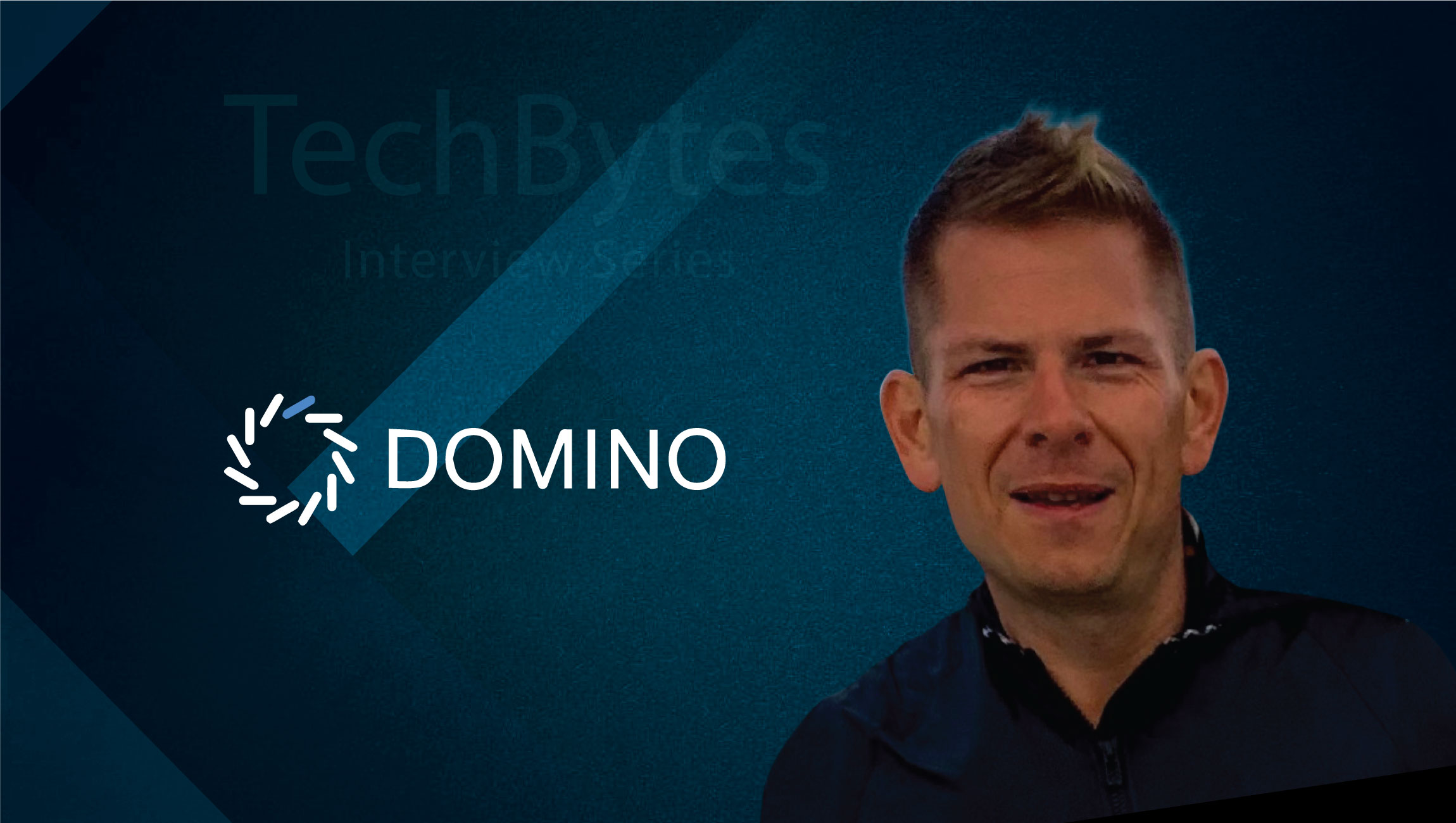How did you plan your transition through the Dotcom era to the modern AI era?
I’ve been strangely fortunate in the sense that my career has coincided with many emerging technologies that now come together under the banner of AI. I started as a Software Engineer connecting medical equipment to medical software; that led to working in diagnostics, decision sciences and analysis of that data once it landed in patient management systems.
From there, I started building predictive models in SAS and Matlab. I was one of the first users of the R Language as it came out of the University of Auckland in my home country, New Zealand. I can’t say I had a plan to work in AI, but ultimately I’ve always really enjoyed problem-solving, and helping businesses use data to develop new evidence-based insights for making better decisions has always excited me.
Tell us a bit more about your ‘superpower’ and how you use it to positively influence your team at Domino Data Lab.
I have enjoyed taking complex topics and techniques such as Artificial Intelligence and explaining them to others. A big part of my role as an Evangelist is building awareness and interest in our platform and creating the art of the possible for our prospects and customers on how to best build out their data science practices.
I translate complex information into meaningful analogs.
What are the most exciting Data Science models that are worth exploring today?
I’m fascinated by the rising use of Generative Adversarial Networks (GAN), particularly in image generation. The ability to regenerate missing frames in videos, or creating photorealistic faces that are completely computer-generated is as exciting as it is scary.
The other area I’m excited by is GAN models being used to explain other Deep Learning models. Many Deep Learning models give us better prediction accuracy than ever, yet the problem has always been understanding what goes on within the prediction black box.
Some recent developments in GAN models have provided a framework for explaining certain types of neural networks which I think will become more important over time.
Which industries are leveraging Domino Data Lab to improve Data Science engineering?
We have a broad set of customers from all sorts of different industries, ranging from Healthcare and Life Sciences to Vehicle manufacturing, Food and Agricultural production, Insurance, Financial Services, and utilities.
One key aspect of our platform is its openness and ability to act as the center of the Machine Learning ecosystem due to how easily our customers can import and build models using new programming packages and products.
We hear how big brands like Salesforce, Oracle, GE, Netflix, Amazon Prime, Hulu, Hotstar, and a bunch of Data Science platforms have disrupted the economy with AI applications. Do you like the way end-users and retail consumers are adopting AI-as-a-service?
I like it when it’s done well. I think companies that do this well really champion transparency in the way they’re collecting and using personal data to help their customers. As a customer, I want relevant offers, I want the best possible service to solve any potential issue I have, and I want that done in a timely fashion. I want the ability to opt-in and out of these platforms with little effort, and when they provide me these benefits, I’m far more likely to trust them and use their services.
Companies that do this well are prioritizing two-way communication with their customers over the growing use of models and technology in their Customer Service, Marketing and Sales channels.
COVID is a global wrecker. How has it impacted your business? How do you cope with it?
COVID-19 has been a challenging time both professionally and personally for almost everyone and their families. I’ve been proud of how we as a company have come together to keep team morale and communication high, and how our focus has remained on supporting our customers.
We recently opened up free access to our platform for any researchers and data scientists working on the analysis of COVID-19, and have also sought ways to use our experience to help teams get set up for success in their remote work practices.
Businesses are suffering heavily due to coronavirus pandemic. Those who have a Martech/Adtech stack or Enterprise Automation on the go, may not face the brunt of the business. Do you agree?
With many storefronts having to be temporarily closed due to COVID-19, online businesses have had an opportunity to gain traffic to their websites and digital properties with potentially higher average online shopping cart sales. The shock of the pandemic has shuttered some small businesses that may struggle to come back without some creative new approaches, and it has spiked demand for many essential goods that can still be ordered online by homebound consumers.
The challenge has been how to synchronize these new levels of activity with supply chain and logistics. Many companies are struggling to fulfill the demand in orders that they continue to receive at atypical higher rates. Companies that could sooner predict and understand buyer demand for items, such as gym equipment, or web cameras or grocery goods have a head-start in making those quick decisions that enabled them to seize opportunities presented by COVID-19.
As in all situations, those most able to respond by processing the latest information and insights, then transforming those data points into strong evidence-based decisions tend to win in their markets.
Sixth sense: Your take on the reengineering of Customer relationships models for Adtech, based on your experience with AI, Business Intelligence, smart assistants for Sales and numerous other tech applications!
The potential for disruption in the way that customers and companies connect is obvious. I think this has led to many businesses jumping at hyped industry solutions such as chatbots and digital assistants without fixing the core part of their business.
Having a digital assistant that can’t actually do anything on behalf of the customer leads to frustration; how many times have you experienced being on a live chat service with a bot, completely frustrated at an inability to connect to a real person. A big challenge is that companies want to leap and take shortcuts to be digitally capable enterprises. Those that do this tend to fail and get stuck in endless waves of “digital transformation”. Those that get it right realize that these new tools and techniques are often just extensions of existing functions such as customer value management.
They invest in growing institutional knowledge and getting their core fulfillment systems functioning properly with micro-services that allow customers to satisfy their requests with self-service apps and digital solutions.
When companies seek solely to drive down the cost of servicing their customers without considering the customer experience or impact, customer service deteriorates and customer retention suffers. Companies that combine the new wave of AI techniques with better digital channels and better knowledge of their customers have the opportunity to build better products and services that delight customers and result in better end-to-end brand experiences for customers. This ultimately leads to greater success.
There are so many options for most modern consumers that businesses who treat customers as a number on a balance sheet will lose out to companies that are better positioned to consistently serve customers at the speed at which they want to move.
One superhuman character you closely relate to in real life–
Tony Stark. He has a willingness to learn from failure, augmenting his capabilities and willpower with technology, and he’s the most human of the Avengers.
Tag a person in the industry whose answers you would like to read here:
Qassem Naim – Head of Data and Technology for FCB New Zealand. He blends the old world creative from advertising agencies with the new era of Martech and Adtech techniques to output some amazing solutions.
David Bloch is a data science professional with twenty years of experience working in data and analytics roles; he has recently joined Domino Data Labs in the position of data science evangelist where he is tasked with boosting awareness of the platform and product, assisting customers to drive adoption of models and machine learning.
David specializes in assisting businesses to build out their community of expertise in data science and coaching data science leaders on how to build high performing teams. David has previously held executive leadership roles in companies such as Fonterra, Vodafone and Unleashed Software.
Domino Data Lab provides data science teams with an industry-leading open data science platform that empowers enterprises to manage data science at scale. Model-driven companies like Allstate, Dell, and Bayer use Domino to accelerate breakthrough research, increase collaboration, and rapidly deliver high-impact models. Founded in 2013 and based in San Francisco, Domino is backed by Sequoia Capital, Coatue, Bloomberg Beta, and Zetta Venture Partners.












